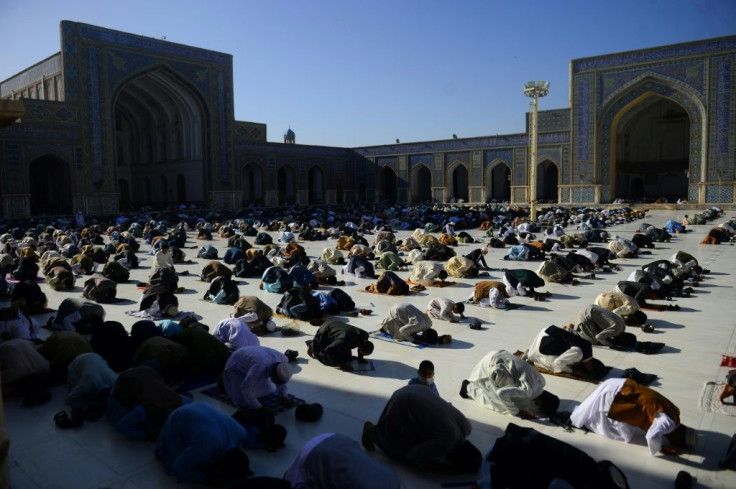Ramadan 2021: Fasting Rules And Tips To Stay Healthy During Muslim Holy Month
This year, the holy month of Ramadan, which depends on the moon sighting, will most likely begin on April 13. Every year, Ramadan falls on the ninth month of the Islamic calendar.
Muslims across the world mark Ramadan by fasting from dawn (fajr) until dusk (maghrib) (abstaining from both water and food), praying five times a day and almsgiving. This annual observance is regarded as one of the five pillars of Islam. Fasting must be done by all able-bodied Muslim adults, which means children, pregnant, breastfeeding or menstruating women, or those who are very ill are exempt, according to Muslim Aid.
The pre-dawn meal during Ramadan is referred to as "suhur" or "sehri," and the feast that happens after the fast is broken at night is called "iftar." During fasting, Muslims must abstain from eating or drinking, sex, smoking and telling lies, among other practices.
Muslims break their fast after consuming "iftar" immediately after sunset. The meal mostly consists of fruits and dates. Muslims chant prayers while breaking the fast. Several Muslims also study and recite the Quran during Ramadan.
Ramadan will most likely end this year on May 12. The dates vary depending on the moon sighting. The end of the fasting month is celebrated by Muslims worldwide and is known as Eid al-Fitr.
Fasting during Ramadan can get rigorous, especially due to the long and hot summer days. Following are some tips to make the day a little easier:
1) Before the start of Ramadan, a person must always consult with a doctor if he/she could observe the fast.
2) Plan the pre-dawn meal in advance to ensure you get sufficient nutrients and hydration.
3) During the day, stay in cool areas (indoors or under a shade preferably) and limit your physical activity.
4) Enough water must be consumed after breaking the fast, at least eight glasses by bedtime.
5) Organize your schedule in such a way that you get enough sleep.

© Copyright IBTimes 2024. All rights reserved.





















